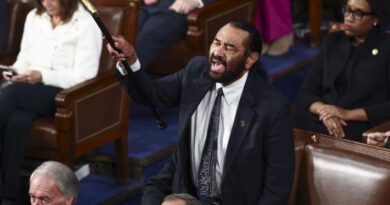How NYC’s Mental Health Crisis Shapes the Ambitions of Progressive Mayoral Hopefuls

The issue of homeless individuals with mental illness plaguing our city’s streets and subways has reached a point where even Mayor Adams’ leftist opponents are starting to acknowledge the need for serious action.
Similar to Adams, they are all advocating to increase mental-health outreach teams and ensure supportive housing for those who can be persuaded to leave the streets. However, some are even in agreement on the necessity to mandate treatment for those individuals.
City Comptroller Brad Lander is now proposing reforms to the involuntary commitment process, such as allowing nurses to conduct evaluations in addition to MDs.
Scott Stringer, a former comptroller, also suggests removing individuals who present a risk to themselves or others, although he has not provided specific details.
On the other hand, Queens progressive state Senator Jessica Ramos proposes to address the issue through “fairness and transformative change,” advocating for a “holistic” approach aimed at achieving “harmony” through various empathetic programs.
Additionally, Brooklyn state Senator Zellnor Myrie criticizes the Adams administration for allowing the mentally ill homeless to slip through the cracks of city services.
Myrie even used the memorial service for homeless F-train immolation victim Debrina Kawam to claim that the city failed her, conveniently neglecting to mention his opposition to forced removals for psychiatric reasons.
It’s no surprise that polls indicate ex-Gov. Andrew Cuomo could easily defeat them all if he entered the race: He portrays a tough image that likely appeals to voters who feel he would break away from the progressive narrative of “we must respect homeless rights” misconceptions.
However, Cuomo as governor took no action on this matter — in fact, he even reduced the number of inpatient psychiatric beds available in the state and city, which are essential for treating individuals with severe mental illness, should New York law change to permit significant involuntary commitments.
Currently, Adams remains the only Democratic candidate with a consistent, multiyear commitment to getting these individuals the treatment they need, even when they resist assistance.
Despite his challenges in persuading the Legislature to grant him the authority to do so, his stance clearly positions him ahead of his progressive rivals.



